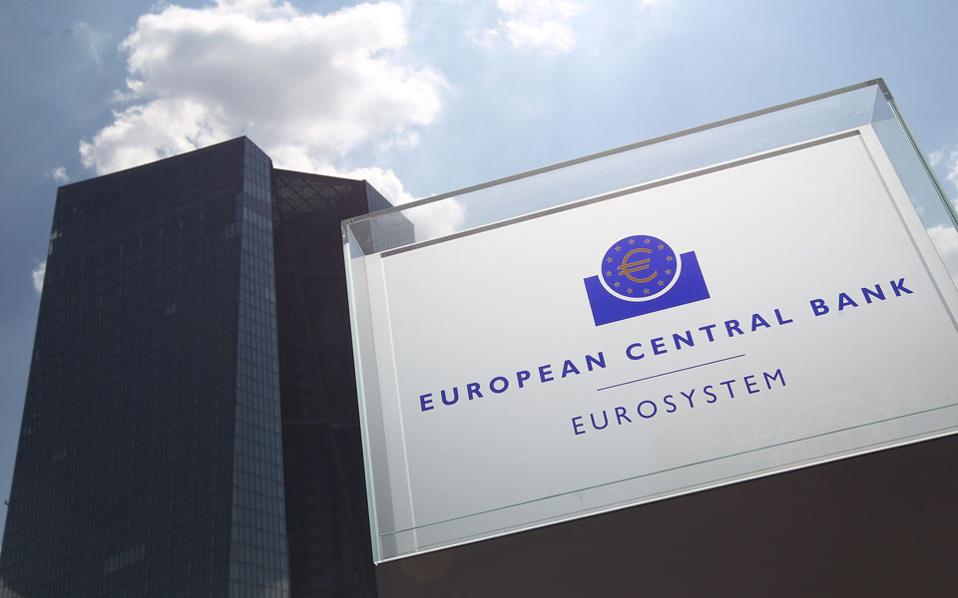Greek paradoxes hold back business

Events over the last few days emphatically underlined the paradox the Greek economy is facing as a result of flawed decision-making on many levels.
The European Central Bank’s governing council decided on Thursday to delay a decision to reinstate the waiver allowing Greek lenders to use government securities as collateral to borrow at cheaper rates because Greece had not yet done enough to complete its bailout review.
The government passed five amendments through Parliament on Thursday evening, after the ECB meeting had taken place. Athens hopes it has done enough to secure the disbursement of the 7.5-billion-euro tranche in the coming days and that the ECB will also then reinstate the waiver.
The problem is not the ECB’s decision on Thursday but a broader policy that has created the absurd situation in which the economy within the eurozone that is in most need of liquidity and low interest rates is currently denied them.
Just before its governing council met, the ECB published its semi-annual survey showing what kind of financial challenges enterprises in the eurozone are facing.
Greek small- and medium-sized enterprises (SMEs), identified difficulties in finding access to finance as their biggest headache, far outweighing other factors such as regulation, competition or finding customers. The extent to which Greek SMEs operate in an environment that is worlds apart for their eurozone peers was highlighted by the fact that access to finance was the least important worry for the companies surveyed in the rest of the euro area. In Greece, 31 percent of SMEs said it was their chief concern, while the eurozone average was 10 percent.
Bank of Greece data published on Friday showed that even the Greek SMEs that are in the rare position of securing loans will have to accept a much higher interest rate than their competitors in the euro area. The central bank’s data for April showed that the lending rate for amounts up to 250,000 euros stood at 5.87 percent, which is close to 300 basis points above the eurozone average.
It is no surprise, therefore, that since 2011 there has been 22.3 percent decline in corporate lending in Greece.
Instead of a stable, business-friendly environment, these companies are facing prolonged uncertainty, a lack of liquidity and higher taxes. While much of this has been brought on by the repeated errors of Greek governments, particularly the most recent one, it has also been exacerbated by the design of the country’s adjustment programs, which have left policy makers chasing daunting targets and having to adopt recessionary measures to reach them.
Greece’s plight has fueled a debate about the effectiveness of austerity and the belief that fiscal contraction can lead to growth. This discussion was undermined last year by the antics of the Greek coalition, denting the credibility of many international economists who argued against austerity policies but who failed to check the fine print before they championed SYRIZA’s cause.
The discussion has now been rekindled due to an article called “Neoliberalism: Oversold?” written by three International Monetary Fund researchers. In their piece, Jonathan D. Ostry, Prakash Loungani, and Davide Furceri argue that the benefits from austerity in terms of increased growth are “fairly difficult to establish when looking at a broad group of countries” and that “the costs in terms of increased inequality are prominent.”
This argument has now resurfaced at a time when countries which are not trapped in an adjustment program like Greece and which have “fiscal space” are choosing not to implement expansionary policies. This places even greater pressure on central banks, like the ECB, to stimulate growth through monetary policy.
The challenge now is for those who believe that fiscal tightening is causing economic damage to translate their arguments into policy.
“The intellectual case against austerity has never been in doubt,” Mark Blyth, the author of Austerity: The History of a Dangerous idea, told Kathimerini English Edition. “But being right is not enough in a situation where blame avoidance is the most important game in town. The IMF research department have been against austerity since late 2011 but its operational arm has been executing it right up to today. The same could be said for elements of the European Commission and even of the ruling German coalition. They know, but they don’t do.”
Blyth was in Athens last week to take part in a discussion that was part of the Europe Calling series of events organized by Germany’s Friedrich Ebert Foundation. The Brown University professor was joined on a panel by Greek Finance Minister Euclid Tsakalotos, who also appeared to doubt that the IMF could now be seen as an anti-austerity standard bearer.
“From my experience the idea that the IMF is to the left of the Europeans is not immediately obvious,” he said. “They have been pressing for debt relief for Greece but within the IMF there is a great deal of cognitive lock-in. In other words, ideas of a previous era are actually being enforced.”
Nevertheless, the buzz created by the article prompted the Washington-based organization’s chief economist Maury Obstfeld to clarify the IMF’s position.
“That article has been widely misinterpreted – it does not signify a major change in the Fund's approach,” he said. “Nobody wants needless austerity. Governments simply have to live within their means on a long-term basis, or face some form of debt default, which normally is quite costly for citizens, and especially the poorest. This is a fact, not an ideological position.”
His comment seems to back up the belief that there is a big gap between what IMF economists might think and the decisions the Fund actually takes. However, Obstfeld added another sentence to his explanation that could be of crucial importance to Greeks.
“Of course, there are limits to the pain economies can or should sustain, so in especially difficult cases we recommend debt re-profiling or debt reduction, which require creditors to bear part of the cost of adjustment,” he told the IMF Survey magazine. “That is the approach we are currently recommending for Greece.”
And here is the ultimate paradox facing Greece: It is in the frontline, feeling the impact of austerity, as the debate about the policy’s merits rages but it is unable (partly due to its own political shortcomings) to influence this discussion or shape the decision-making process. Instead, Greek businesses have to hang on for dear life, hoping that someone will put an end to the absurdity.





